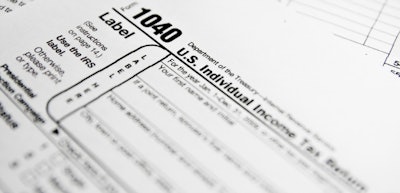
A bill introduced in both the House and the Senate would restore the per diem tax deduction benefit for company drivers that was eliminated in the 2017 Tax Cuts and Jobs Act. The deduction saved drivers hundreds — if not thousands — of dollars a year in tax liability, depending on how many days a year they worked.
The bills were introduced by two Democrats from Pennsylvania — Sen. Bob Casey and Rep. Conor Lamb. The Senate bill has been filed to the Senate’s Finance Committee, where it has 13 co-sponsors, all of whom are Democrats. The House bill has been filed to the Ways and Means Committee, where it has 12 co-sponsors — 11 Democrats and one Republican.
The new bill in Congress, dubbed the Tax Fairness for Workers Act, would allow drivers to resume deducting 80 percent of the federal per diem allowance (currently $66 a day) from their annual tax bill, among other small changes to the 2017 tax reform package. The 2018 tax year, filings for which were due in mid-April, was the first year that drivers could not take the deduction.
Their bills would allow drivers to deduct their per diem only if carriers do not provide per diem reimbursements. There’s been a growing trend, accelerated by the per diem changes in the 2017 Tax Cuts law, for carriers to incorporate per diem pay into drivers’ pay packages, allowing drivers to take advantage of the per diem benefit even if they can’t enter it as an income deduction for tax purposes. Under these pay packages, drivers still receive 80 percent of the per diem rate set by the IRS as tax-free earnings.
Should the bills become law, and under the current $66 per diem rate set by the IRS, drivers would a be able to deduct $52.80 from their annual income for every day they spent working away from home. So if a driver drove five days a week on average, that would equate to an annual deduction of $13,728, which would reduce a drivers’ annual tax bill by $1,300 or more, depending on their annual income. However, drivers could only take that deduction if they chose to skip the standard deduction of $12,000 for individual filers and $24,000 for married couples.
In addition to restoring per diem pay for truck operators and other transportation workers, the bill would also allow union dues to be deducted from taxable income.
The per diem changes instituted by the 2017 law did not affect owner-operators, who can still deduct per diem as a business expense.










